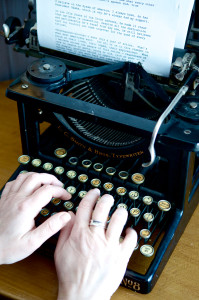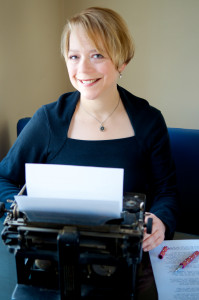No days off from learning is a good thing
“There are no days off from learning,” a friend said to me recently. And it struck me that of all the lessons I will take away from the 2017 frank gathering, it’s that those of us who work in social change must be lifelong learners. We must be willing to learn something new every day — to challenge our assumptions, to say “I don’t know” and to be curious enough to seek answers to the tough questions about the world around us and the work we do.
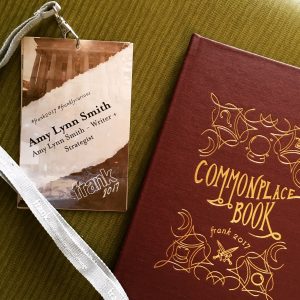 I’m not surprised by the infusion of information and inspiration I received during the three days of frank, the annual gathering of social change communicators. I came prepared to learn from people who are at the top of their field and the top of their game. What I didn’t necessarily expect was to hear many of those people talk about their relentless pursuit of improvement. They recognize that the work we do — instigating and implementing positive change — can’t be mastered through complacency. It demands that we embrace the challenge of every day as if our lives depended on it. And when we’re championing issues like affordable healthcare, environmental protection or racial justice, people’s lives actually do depend on it.
I’m not surprised by the infusion of information and inspiration I received during the three days of frank, the annual gathering of social change communicators. I came prepared to learn from people who are at the top of their field and the top of their game. What I didn’t necessarily expect was to hear many of those people talk about their relentless pursuit of improvement. They recognize that the work we do — instigating and implementing positive change — can’t be mastered through complacency. It demands that we embrace the challenge of every day as if our lives depended on it. And when we’re championing issues like affordable healthcare, environmental protection or racial justice, people’s lives actually do depend on it.
During the closing ceremonies, Ann Christiano, creative director of frank and Frank Karel Chair in Public Interest Communications at the University of Florida, spoke of the value of virtuosity. Watch her talk online to fully appreciate her message, but these are the words that stuck with me most indelibly: “We must always strive to be our best. We must always self-correct and look for the opportunity to be better.”
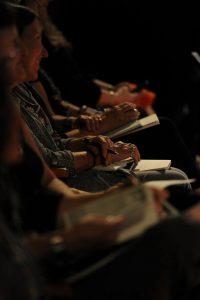 Virtuosity is fueled, in part, by curiosity, which was the theme of this year’s frank gathering. We were given a Commonplace Book in which to capture “curious musings.” I covered many pages with ideas from the speakers and sessions I was most curious about, and as I continue filling pages with reflections and revelations I feel certain there will be no holding back the renewed sense of curiosity this year’s gathering unleashed in me.
Virtuosity is fueled, in part, by curiosity, which was the theme of this year’s frank gathering. We were given a Commonplace Book in which to capture “curious musings.” I covered many pages with ideas from the speakers and sessions I was most curious about, and as I continue filling pages with reflections and revelations I feel certain there will be no holding back the renewed sense of curiosity this year’s gathering unleashed in me.
Now that I’m back at work, I’m reminded of the words of the late, great Wendy Wasserstein, which have long been a mantra for me: “How will you use what you know?”
Some of what I learned at frank is immediately influencing my work, like a bolt of lightning. I’m already putting smarter communication strategies to use, whether they’re concepts that were new to me or approaches I’ve always employed but am applying in more imaginative, innovative ways thanks to what I learned.
But I suspect that what will be even more valuable are the ideas and inspirations that will seep in almost invisibly, like rays of sunshine, over the days and months to come. Our skin tingles with joy when it’s touched by the sun, but the benefits of what our bodies absorb go much deeper. I’m confident that frank will nourish my mind and spirit not just in the moment, but as I continue to pursue curiosity and virtuosity in every aspect of my work and my life at large.
The words of Bridgit Antoinette Evans will echo in my head, perhaps forever. She spoke of “soulful disruptions,” and her frank talk reminded me that who we are is a direct influence on the work we do. I know I’ll also be guided often by the wisdom of Rashad Robinson, who said, “People don’t experience issues. They experience life.” When I’m writing about issue advocacy or telling people’s stories, that truth will provide a meaningful frame for my work. And then there’s Trey Kay, whose Us & Them podcast explores our country’s cultural divides. He said, “When you’re trying to save the world, sometimes you have to recognize that it’s you who must change.” Change is an inevitable part of life — it’s in the name of the work we do: social change. When we see others resistant to changing in the ways we ask them to, it’s important to remember that every one of us can experience that same stubbornness.
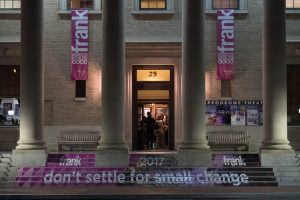 Moving forward, I will draw strength and inspiration from the many frank speakers who talked about empathy and hope and optimism. All of these virtues may feel in short supply right now, but after frank I know they are bountiful and necessary to positive action. Just as necessary as the willingness to stay curious, always.
Moving forward, I will draw strength and inspiration from the many frank speakers who talked about empathy and hope and optimism. All of these virtues may feel in short supply right now, but after frank I know they are bountiful and necessary to positive action. Just as necessary as the willingness to stay curious, always.
Every day is an opportunity to open our minds and our hearts to new solutions to thorny problems. I’m grateful for the inspiration of the frank community — and the infinite resources it provides for honing our skills and discovering the best use of our talents. From the talks posted online to a new online master’s program in Public Interest Communications launching later this year to a thriving tribe of do-gooders who stay connected and collaborative through frank, there is a steady supply of new things to learn, every single day.
[Photo credits: Top photo by Amy Lynn Smith; other photos courtesy of frank on Facebook].

